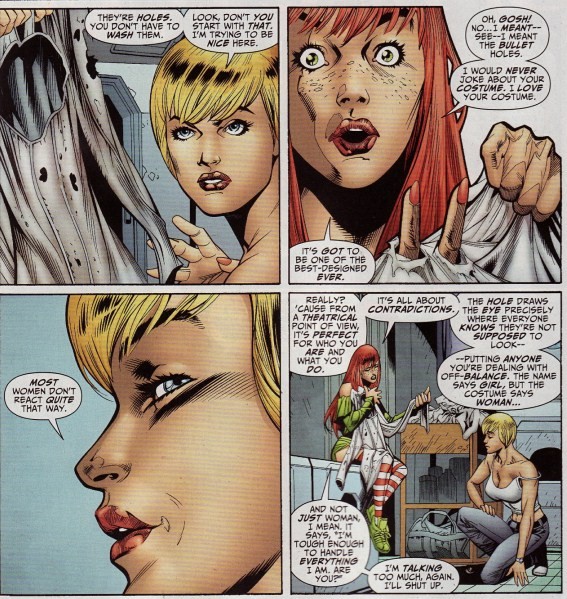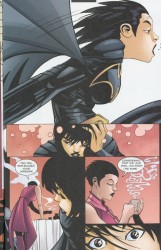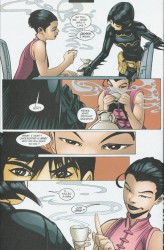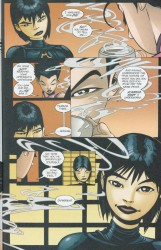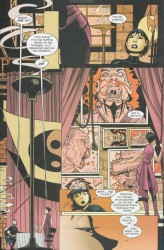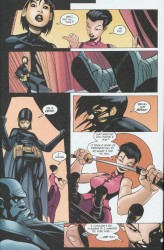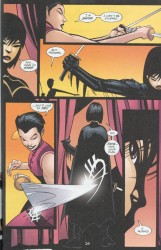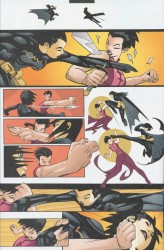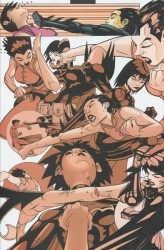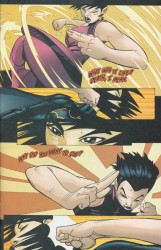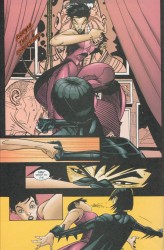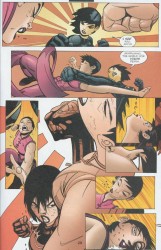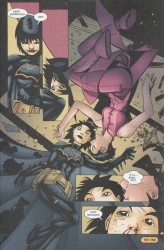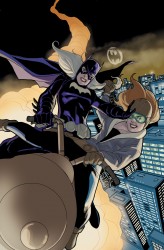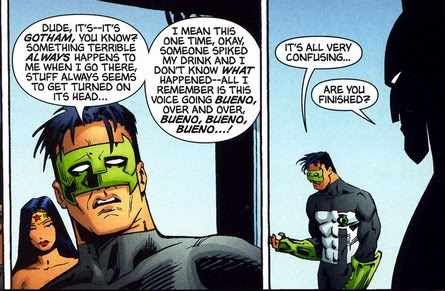
Boobgate: Nine Days Later
November 28th, 2009 Posted by Esther Inglis-ArkellJen Van Meter, the writer of “Spin Cycle,” the Cyclone and Power Girl story in the JSA: 80 Page Giant, has responded to my entry of last week.
Hi, Esther. A friend forwarded me links to your post and to a couple other blogs that have picked up on your comments, and I feel compelled to reply because you’re right — I failed in what I was trying to accomplish with the “Spin Cycle” story, or, at the very least, I failed you and many of your respondents.
What I was asked by DC to supply was essentially a short story about one of the younger JSA characters walking through a door in the brownstone to find something unexpected, surreal, impossible (by the character’s standards) that, whether it “really happened” or not, could somehow have bearing on the way that character perceives her-/himself.
I’ve been interested in Cyclone since she was introduced because, unlike most teens in costume in the superhero worlds, she doesn’t seem particularly interested in conveying a fully-formed adult sexuality, nor is her chosen costume conventionally sexualized. I like her smarts, her sense of the theatrical, and I think she’s interesting because her insecurities seem very plausible and refreshingly commonplace. I wanted the story to be a series of experiences that in one way or another allay some of her anxieties about meriting a place in the JSA, and given that she was team leader at the time I was writing it, I wanted to use PG to stand in for the focus of those anxieties.
Because I was thinking about the story as being some whacked-out magical construct emerging somehow out of Maxine’s point of view, I wasn’t thinking about Power Girl–in the story–as herself but as something produced by how Maxine sees her, and in my reading of these characters Maxine had been seeing PG the way a new hire might see a CEO as explicably demanding, intimidating, and intense as, say, Oprah, Madonna and Secretary Clinton all rolled into one. I wanted Maxine to leave the story feeling more like a worthy peer and teammate.
So one thing led to another, and I found myself wanting Maxine to come upon PG doing something simple, ordinary, humanizing, and when I decided on laundry I started wondering what Maxine would think of Power Girl’s costume. There was nothing externally meta-textual going on for me, but I was indeed thinking that Maxine looks at super-heroics as at least one part theater; she’s got the theater background and knows that–in their world–there’re lots of reasons they’re not all running around in track suits and army/navy surplus. What I had in mind was that in “reading” the costume to this apparition of Power Girl, what Maxine is really doing is explaining to herself some of why she finds Power Girl so intimidating. I’m not pretending to be unaware of the conversations amongst fans and creators about the sexism that seems so deeply embedded in the genre, especially as it focuses on costuming; I am saying that what I was concerning myself with at the time was the notion that similar conversations might/must be ongoing in the world the characters occupy as well.
One other thing I do need to offer up for consideration, and I see this come up frequently in comic reviews and critiques: you ascribed intent to lecture to me but used the art as the focus of your argument. In the script, what I asked for was a shot of Power Girl, “a little surprised by the enthusiasm, perhaps thoughtful,” or something like that. I didn’t see what you have when I saw the inks; if I had done, I probably would have asked if there was time to redraw at least that panel, or, more likely, would have tried to make changes at the lettering stage to make the ideas behind the scene more plain.
Do I like the vast and very gendered disparity in costuming in conventional superhero comics? No. Do I love superhero comics despite the many flaws of the genre? Absolutely. Having chosen to write superhero comics for hire on occasion, must I work with what’s available to me? Sure. Did I imagine that I could say something about Cyclone by giving some thought to how she might see, or want to see, one of the costumes most emblematic of the problem at hand? Yeah, I did. Clearly, I misstepped.
I wish I had caught how the scene could be taken while I was working on the script. I would have done something about it.
No obscenities, no intimations of rage, and no snotty rhetorical questions (which is more than you can say about my original entry). Very classy.
And here is a link to the original post. (Jen Van Meter’s comment currently the third from the bottom. You can also see my response, and a special guest appearance by Jimmy Palmiotti.)

